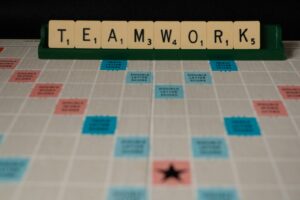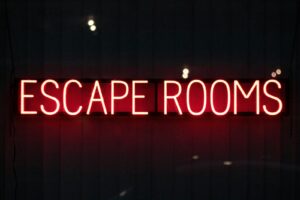Strong communication skills are vital for success in all aspects of life, from building personal relationships to excelling in your career. However, effective communication requires practice and a supportive environment to grow. Escape rooms—with their immersive challenges and team-based gameplay—offer a fun and practical way to hone these skills.
By engaging in an escape room, participants are placed in scenarios that require clear communication, active listening, and collaborative problem-solving. Let’s dive into how escape rooms can help you become a better communicator and why they’re such a valuable experience for personal and professional development.
1. Encourage Clear and Concise Communication
Escape rooms are filled with puzzles and challenges that demand quick thinking and precise communication. Explaining your ideas or sharing observations clearly and concisely is essential to solving puzzles efficiently. This practice improves your ability to articulate thoughts under pressure—a skill that translates well into everyday conversations and workplace interactions.
2. Foster Active Listening
In an escape room, every team member’s input is valuable. Success depends on your ability to listen actively to others—acknowledging their ideas and building on them to find solutions. This environment trains you to pay attention, avoid interrupting, and fully understand what others are saying before responding.
3. Promote Collaborative Problem-Solving
Effective communication is key to teamwork, and escape rooms provide the perfect platform to practice it. You’ll need to discuss strategies, share insights, and delegate tasks, all while maintaining open lines of communication. This collaborative problem-solving process strengthens your ability to work with others and fosters mutual understanding.
4. Improve Nonverbal Communication
Communication isn’t just about words; it’s also about body language, facial expressions, and tone of voice. In the fast-paced environment of an escape room, nonverbal cues often play a significant role in conveying urgency or emphasizing a point. Practicing these skills in a game setting can enhance your overall communication abilities.
5. Build Confidence in Speaking
Escape rooms provide a supportive and nonjudgmental environment where participants can practice expressing their thoughts and ideas. This opportunity helps build confidence in speaking up, especially for those who may be shy or hesitant to voice their opinions in group settings.
6. Enhance Conflict Resolution Skills
Not all escape room experiences run smoothly. Disagreements over strategies or interpretations of clues are common, and resolving these conflicts requires tact and effective communication. Practicing conflict resolution in a low-stakes environment prepares you to handle similar situations more gracefully in real life.
7. Encourage Feedback and Reflection
After an escape room session, teams often discuss what went well and what could have been improved. This debrief provides an opportunity to give and receive constructive feedback, helping participants learn from the experience and apply those lessons to future interactions.
8. Practice Adapting Communication Styles
Escape rooms bring together people with diverse communication styles. Adapting your approach to effectively collaborate with others—whether they’re assertive, analytical, or quiet—is a valuable skill that can make you a more versatile communicator in any setting.
Tips for Maximizing Communication Benefits in Escape Rooms
- Divide and conquer: Assign roles based on individual strengths to streamline communication and task delegation.
- Speak up: Share your observations and ideas, even if you’re unsure. Your input could be the missing piece of the puzzle.
- Stay positive: Encourage your team and maintain a supportive atmosphere to keep communication flowing.
- Reflect afterward: Use the debrief to identify what communication strategies worked and how you can improve.
Conclusion
Escape rooms are more than just a thrilling activity; they’re a powerful tool for improving communication skills. By fostering clear expression, active listening, and collaborative problem-solving, these experiences help you become a more effective communicator in all areas of life. Whether you’re looking to enhance your professional abilities or strengthen personal relationships, an escape room adventure can provide the practice and confidence you need to succeed. Ready to level up your communication skills? Step into an escape room and let the conversation begin!




















